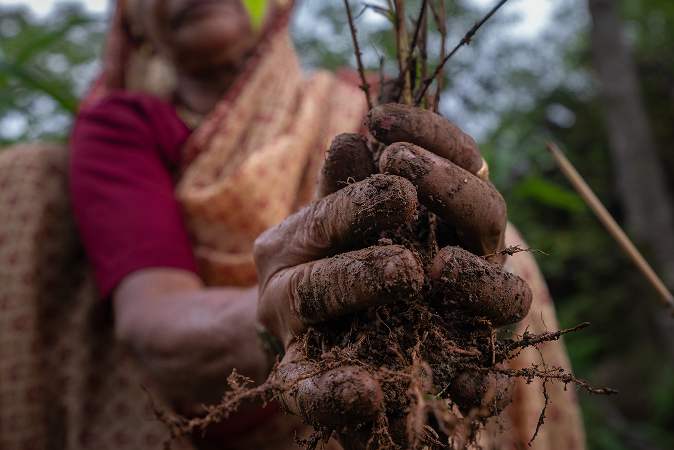Never underestimate
a woman with a smallholder farm
the world’s food,1 yet they receive less than 1% of climate investment.2
That's not just a funding gap,
ETHIOPIA
In South Ethiopia Regional State, Ethiopia, International Fund for Agricultural Development's Gender Transformative Mechanism (IFAD’s GTM) investment is helping create more balanced leadership in water governance. And with more women in leadership roles, water access has become reliable all year long, increasing agricultural yields and incomes.
Just a few years ago, almost no women held leadership positions in Irrigation Water User Associations. Today, they make up 25%, and they’re strengthening governance and making access to water more equitable.
Climate-smart irrigation enables year-round production, and one growing season becomes three. Now there’s a greater diversity of crops, with a higher nutritional and economic value, which in turn boosts household incomes and strengthens the local economy.
Water access has become more reliable, equitable, and sustainable – driving productivity, strengthening community resilience, and ensuring progress is both inclusive and lasting.

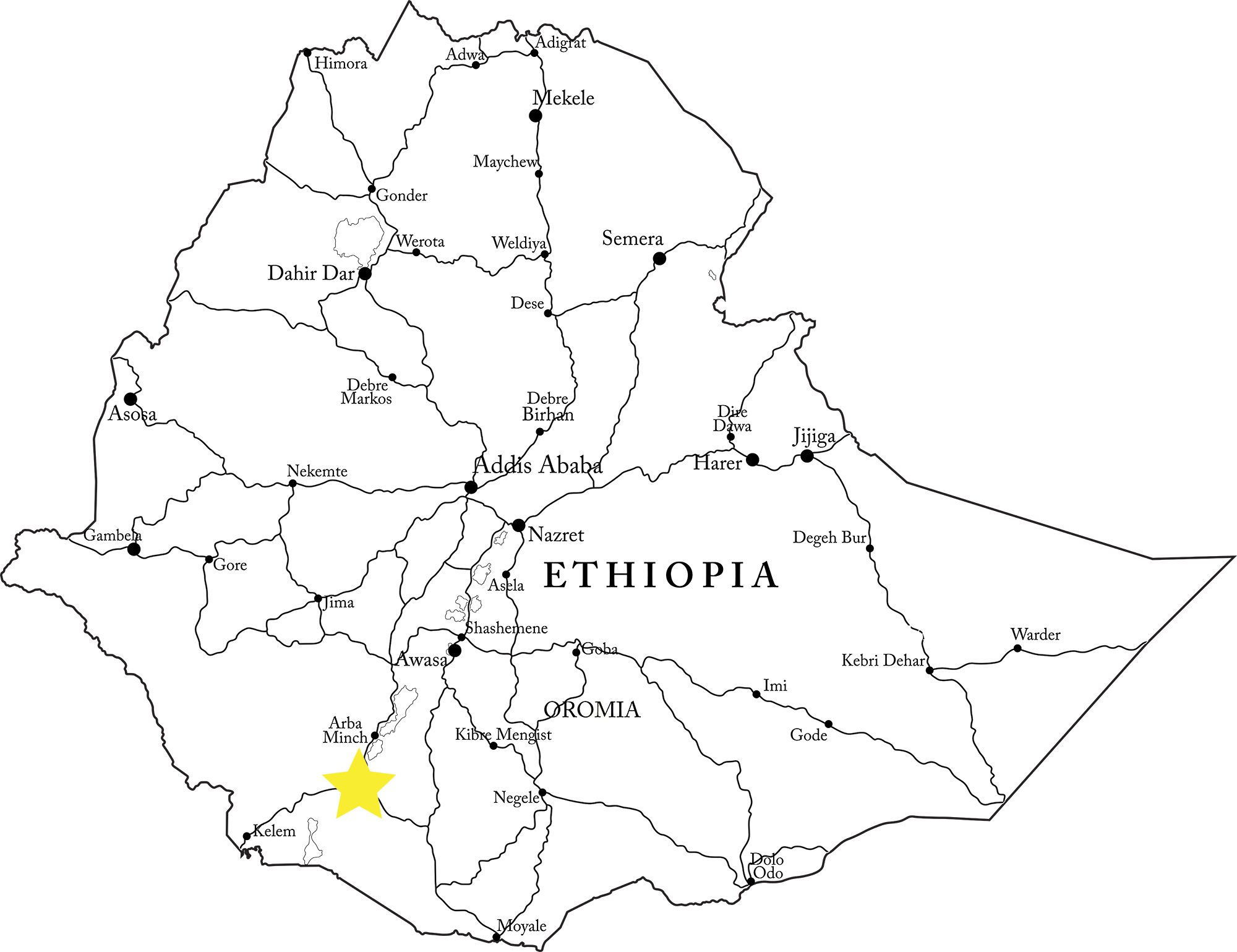
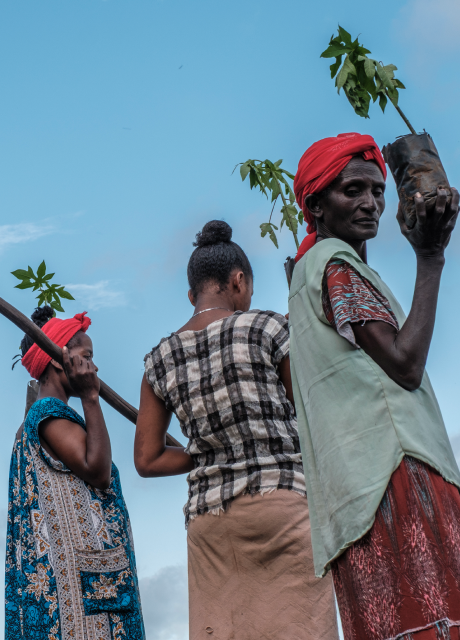
Abaynesh is planting a young cassava sapling.
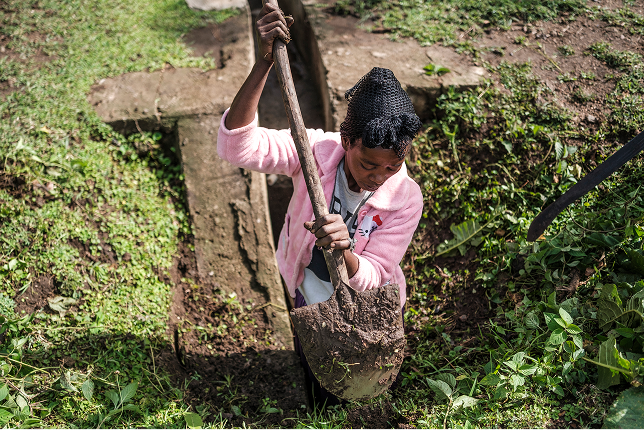
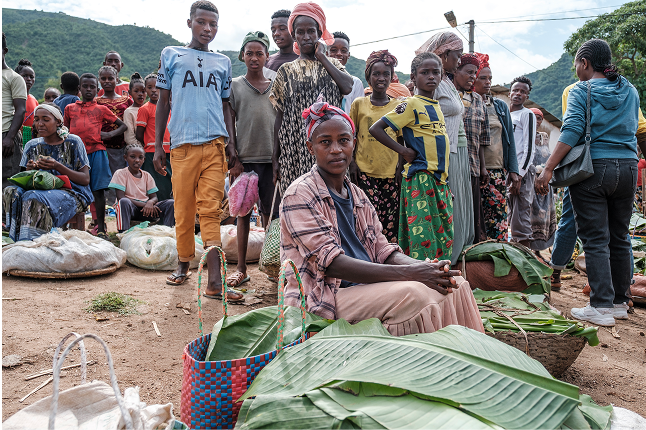
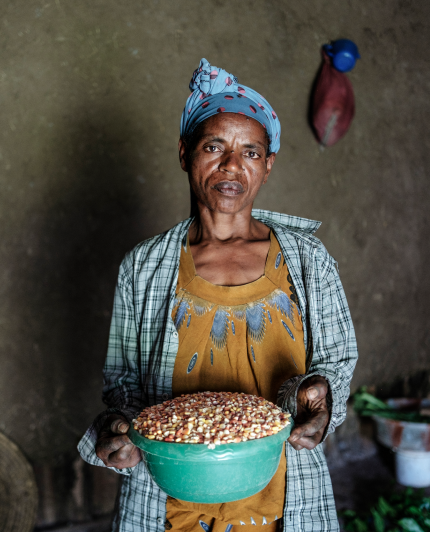
INDIA
In Maharashtra, India, IFAD’s GTM investment equips women to become leaders in bamboo cultivation, creating long-term livelihoods out of barren, depleted land.
Training in bamboo cultivation, eco-friendly farming and access to saplings and fertilizer have enabled women farmers to transform unproductive land into a climate-resilient income source.
These entrepreneurs are now part of a global supply chain, and the bamboo they grow will become furniture, flooring, textiles and paper. This new source of income is improving their long-term financial security and shifting household power dynamics.
Bamboo production enables micro-entrepreneurship, strengthens community resilience and also benefits the environment, absorbing up to 45% more carbon dioxide than equivalent tree plantations and releasing 30% more oxygen than most trees.

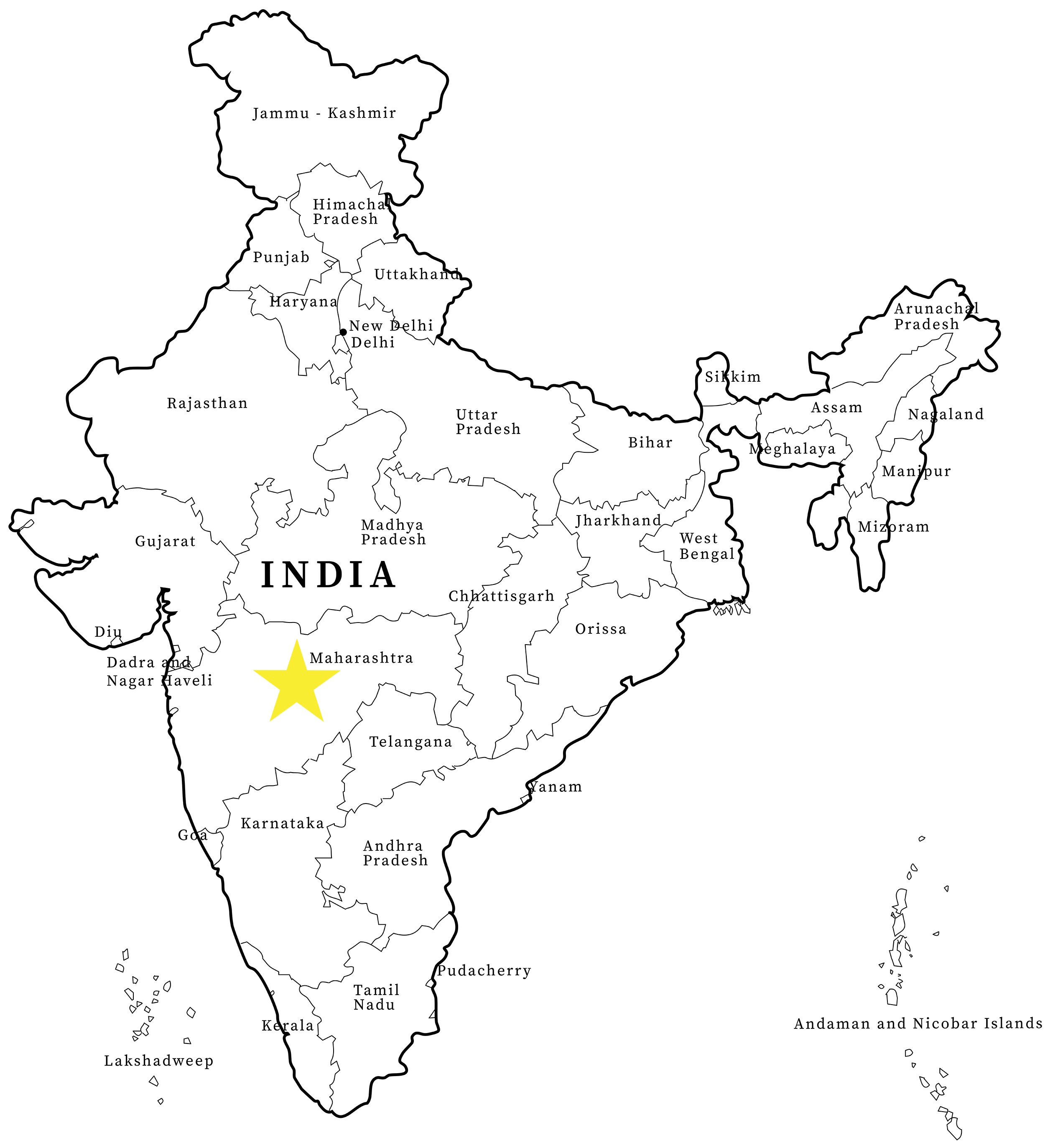

Anita and Kamal check their bamboo saplings for insects.

